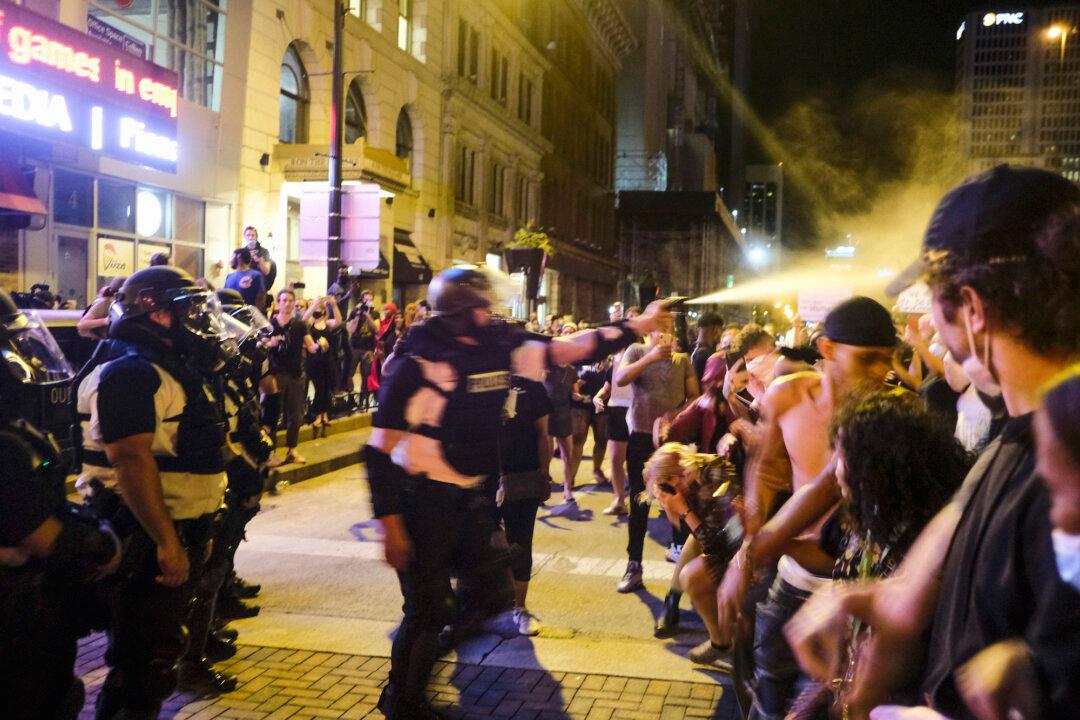A federal judge on Friday ruled that police in Columbus, Ohio, may not use non-lethal force against nonviolent protesters, following a lawsuit that claimed law enforcement used excessive force to disperse peaceful demonstrators last summer, including by deploying rubber bullets, wooden pellets, and pepper spray.
In an 88-page opinion obtained by The Epoch Times, Chief Judge Algenon L. Marbley of the Southern District of Ohio ruled in favor of a preliminary injunction, prohibiting Columbus police from using non-lethal measures like flash-bang grenades and batons against nonviolent protesters, while limiting enforcement of dispersal orders through citations or arrests, based on probable cause that a violation had been committed.





